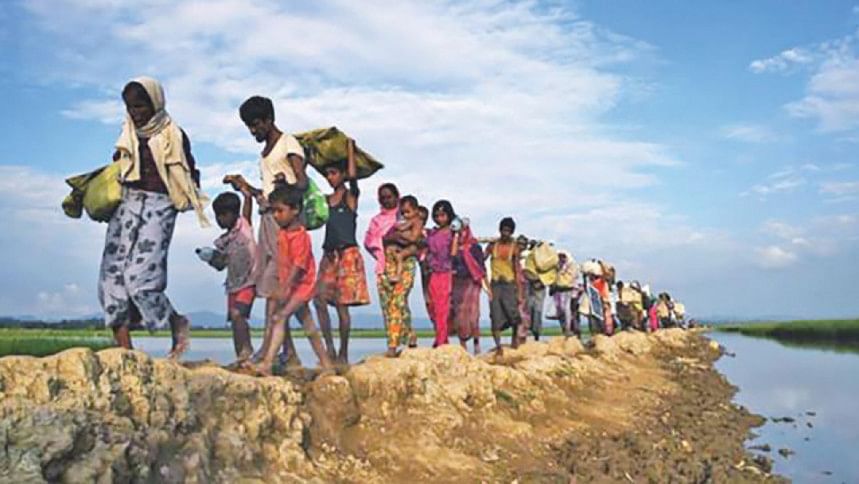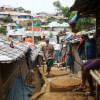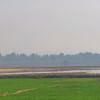Arakan army in control of Rakhine: Govt mulling over new Rohingya policy

Bangladesh is considering modifying its Rohingya policy after seven years of failed repatriation attempts and changed political realities in both countries.
Starting in November last year, Myanmar's ethnic rebel group Arakan Army (AA) has gained control of 11 of Rakhine's 17 townships in Rakhine, with the latest being Maundaw, a major township of the Rohingya.
With this, the AA now controls more than 80 percent of Rakhine and the 271km-long border with Bangladesh, making it the de facto authority of Rakhine.
On the other hand, Bangladesh's interim government, which has committed to protecting human rights and democracy, is taking a fresh look at the Rohingya and Myanmar crisis.
Bangladesh authorities are considering how semi-formal communication can be established with the AA, keeping in mind its role in Rohingya repatriation in the future, The Daily Star has learnt from foreign ministry officials involved with the deliberations.
While trying these new approaches, Dhaka, however, will maintain a relationship with the Myanmar authorities and continue to seek support from India and China, the regional powers having major stakes in Myanmar, they said.
As a state, Bangladesh cannot maintain relations with a non-state actor AA, Foreign Adviser Touhid Hossain said at a recent event held at the Bangladesh Institute of International and Strategic Studies in Dhaka.
"However, there can be semi-formal relations. In the coming days, AA will be the biggest factor in Rakhine State. We cannot do anything bypassing them," he said.
Bangladesh cannot shy away from engaging with Myanmar because there are issues of yaba smuggling and human smuggling, said Sk. Tawfique M. Haque, director of the South Asian Institute of Policy and Governance.
"You cannot control the border alone. You will need to engage with the AA -- be it for drug smuggling, human trafficking or Rohingya repatriation."
China and India are also engaging with the AA despite having formal engagement with the Myanmar junta, he said.
Since July, about 60,000 Rohingyas have fled to Bangladesh, taking the total sheltering in the camps to upwards of 1 million, according to government officials. More Rohingyas might follow.
On the other hand, security concerns around the Rohingya camp in Cox's Bazar have grown, but the fund for Rohingya is also declining.
Of the $852.4 million sought for Rohingyas this year, donors provided only $455.7 million (53 percent) until September 30, according to the UN Refugee Agency.
As much as 73 percent of Rohingya in the Cox's Bazar camps buy food from outside as the monthly food ration of $12.5 is inadequate, according to Mohammed Mizanur Rahman, Refugee Relief and Repatriation Commissioner.
Some Rohingya youths are engaged in volunteering but most others have nothing to do.
"This reality pushes the Rohingya to be involved in smuggling of yaba, human trafficking and even arms smuggling. Some members of the local community are also involved here. This is creating a security threat in the entire region," he said.
Foreign Adviser Touhid Hossain said he fully supports the education of Rohingya of up to class ten in Myanmar syllabus and skills development.
"We have to try to help improve their skills so that when they return home, they can have a means of livelihood," he said.
Against the backdrop, Chief Adviser Muhammad Yunus appointed Khalilur Rahman as High Representative on the Rohingya Problem and Priority Issues Affairs, while at his request, the UN is set to host a UN Conference on Rohingya early next year.
"Khalilur Rahman is working on the matter. We also want to bring the international focus back to the Rohingya crisis," an official of the foreign ministry told The Daily Star.
The interim government is willing to improve services in the Rohingya camps, especially education and skills.
For that, funding will be an important issue, which will be a key priority in the UN conference early next year, the official added.
Meanwhile, Yunus has proposed the creation of a "safe zone guaranteed by the UN" for the displaced people in Rakhine and finding ways to support them and prevent thousands of new refugees from fleeing to Bangladesh.
The situation in Rakhine is the worst since the 2017 influx, said an official at the Refugee Relief and Repatriation Commission.
Up to two million people in Myanmar's Rakhine state face the dire prospect of famine amid a broader economic collapse and worsening humanitarian crisis triggered by the military's 2021 overthrow of the democratically elected government, according to a UNDP report published on November 7.
The safe zone can also be used as the first platform of repatriation before taking them to the Rohingya's original places when the situation permits, Haque said.
"This can be an important aspect of discussion during the UN conference early next year," he said.
Bilateral engagement with Myanmar and then engaging China since 2017 have yielded no result, said foreign ministry officials in New York and Dhaka.
"Not a single Rohingya returned to Myanmar. The current government, therefore, is looking to the broader international community for helping address the Rohingya crisis," an official told the correspondent.
For the first time, the UN is set to hold an all-stakeholder conference either in New York or Dhaka and the next course of actions and policies will be discussed and adapted there. The issue was agreed in a UN resolution in New York on Nov 21.
Also, as Rohingya funding is dropping, a major objective of the UN conference would be mobilising funds, which can improve the situation in the camps, the official said.
"We want to bring back the focus of the international community to the Rohingya crisis," Hossain said.
China and India will see their interests, which is understandable, but Bangladesh needs to see how they can facilitate Rohingya repatriation and regional peace and stability, which can be hampered if the Rohingya crisis lingers.
Southeast Asian countries including Malaysia, Thailand, Indonesia and Singapore also need to be kept on board, he added.
Since 2017, Myanmar created a hype of insecurity in the border areas, according to foreign ministry officials. The Myanmar junta stoked tension by firing, attacking fishermen on the Naf River, illegal border crossing and numerous violations of the Bangladesh airspace.
"Bangladesh, however, avoided the trap of being pulled into an armed conflict," an official said.
Bangladesh needs to have minimum deterrence, not to fight, but to respond if anyone attacks Bangladesh.
"Diplomacy without armament is like music without instruments," he said.
Sufiur Rahman, Bangladesh's former ambassador to Myanmar, also supports this. "There should be a minimum deterrence as a strategy to secure peace with Myanmar."
He also suggested that Bangladesh engage the National Unity Government, the civilian government fighting the Myanmar junta, to secure a clear pathway towards citizenship for the Rohingya.
At the same time, Bangladesh also needs to assure the Myanmar junta of non-involvement in security matters of Rakhine or Myanmar and on matters related to the territorial integrity of Myanmar.
"Bangladesh should seek to establish multilayered, interdependent relations with Myanmar's union government," Rahman said.
He also suggested that Bangladesh continue to pursue international accountability at the International Court of Justice and International Criminal Court for Rohingya rights, for the Rohingya as well as reconciliation among all communities or victims in Rakhine.
"At the same time, Bangladesh needs to support Rohingya leadership both in Bangladesh and abroad for them to reclaim their rights in Myanmar."
Also, Bangladesh needs to develop a national consensus among all the political parties on the Rohingya policy.
"This will be crucial to better handle the Rohingya crisis," Rahman added.

 For all latest news, follow The Daily Star's Google News channel.
For all latest news, follow The Daily Star's Google News channel. 











Comments